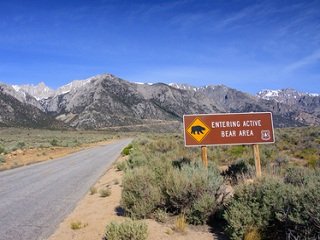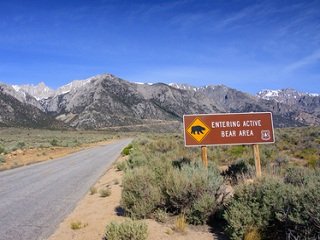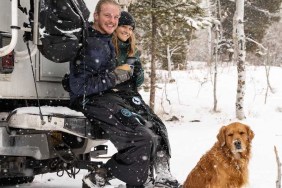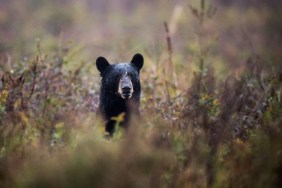 We become so used to not thinking twice about food when we’re at home, with regards to the lingering aromas of cooked meals. Really, though, we don’t have to think about it. However, because we can become so used to this, it’s easy to neglect an awareness of the scents created by food when we’re camping. This can be an issue when animals are present, especially in bear country. Here are a few tips on how to handle your food when sharing your outdoor experience with the local wildlife.
We become so used to not thinking twice about food when we’re at home, with regards to the lingering aromas of cooked meals. Really, though, we don’t have to think about it. However, because we can become so used to this, it’s easy to neglect an awareness of the scents created by food when we’re camping. This can be an issue when animals are present, especially in bear country. Here are a few tips on how to handle your food when sharing your outdoor experience with the local wildlife.
You always want to be sure to check with the local rangers or DNR about the wildlife activity where you’ll be camping, especially in an unfamiliar region. If you’re unfamiliar with bear precautions, such as what to do when a bear enters your campsite or how to dispose of rinse water in a given region, ask questions. Pay careful attention to any advice or warnings given by local authorities, as well.
Where bears are present, taking extra precautions when preparing meals and storing food should to be your top priority. Bears have an uncanny sense of smell and can become overly curious when they’ve grown used to human presence in their habitat. For this reason, you’ll need to make sure to adopt a few practices. First, make sure you cook your meals 100 yards away, and also downwind, from your campsite. Another great habit to pick up is using freeze-dried foods, which cuts down on scent by not requiring stove top cooking. Try to avoid leftovers as best as you can, as well, and never leave food scraps behind when you leave. When you’re done with the meal, thoroughly clean, then store, any cooking items, and disperse your rinse water over a broad area, to avoid any food particle concentration that might attract animals.
Anything that gives off a scent should be stored in one location. This means storing food items in sealed bags, and sometimes double bagging them, as well. Keep your pots, pans, and any other items associated with food preparation or consumption in containers, too.
You can also make a conscious effort to avoid creating more scent by avoiding wiping your hands on your clothing. Better yet, I would even store the clothing you wear while you cook in a sealed bag when you’re done, to avoid any lingering aromas. Also, avoid using aromatic soaps or toothpaste, if possible.
As I’ve stated before—and I can’t stress it enough—absolutely everything that has a scent, including food, food preparation items, clothes with any food residue on them, and toiletries all need to be stored together in one location. Taking some time to properly store such items and keep any scents to a minimum will help reduce the risk of attracting any unwanted attention from bears and other animals.








